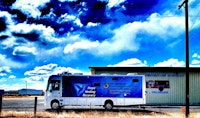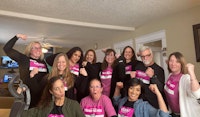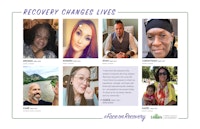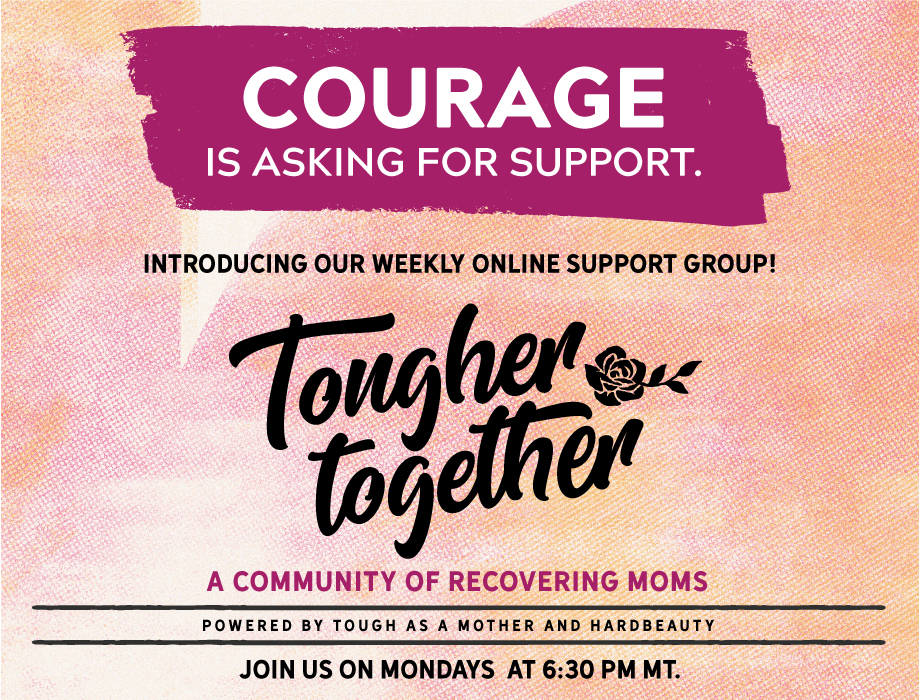
Jennifer Silva; Chief Clinical Officer
As Chief Clinical Officer of the San Luis Valley Behavioral Health Group, Jennifer Silva knows that for moms with substance use disorder, access to treatment when and where they need it, is everything. That’s why she is especially proud of the San Luis Valley (SLV) Mobile Health Units currently serving 112 clients.
“A lot of people think inpatient care is their first and only option,” Jennifer explained. “But really, care always starts as an outpatient in some capacity. Our mobile units deliver care to all of our rural communities, creating important access points for Medication-Assisted Treatment as well as a consistent multi-disciplinary team that these moms come to trust and rely on.”
To travel across the San Luis Valley takes about two hours, and there is no public transportation. So, with the Behavioral Health Group’s main center in Alamosa, many moms couldn’t make the trip for care. The mobile health units do away with the transportation barrier.
The mobile health units resemble a large recreational vehicle on the outside and a typical health clinic on the inside. Each has three dedicated staff members: a licensed practical nurse, a licensed or certified addictions counselor, and a peer recovery coach . The teams offer services including peer support, brief intervention, prescriptions for medication-assisted treatment if needed and assistance with wraparound services
“Our team also helps moms with quick intervention when other things in life come up, like the need for rental assistance, heat assistance, primary care for other health concerns and more,” Jennifer explained. “We are very welcoming to these moms: We develop important relationships that have a big impact on their recovery, and we provide other support to them as needed, including diapers, hygiene kits, blankets, coats and activities for their kids to take home. We look at what other resources they may need and are making sure that our moms are getting their primary health care as well.”
The SLV Mobile Units are licensed as a primary health care site now, so they serve as both medical and behavioral clinics. And, while it’s not a requirement, the SLV care teams are currently all female and most are moms themselves. “They have a heightened level of empathy when dealing with our clients,” Jennifer said. “I think that makes a lot of women feel more comfortable coming here.”
During the pandemic, the mobile unit’s Medication-Assisted Treatment (MAT) was especially crucial for those in recovery. MAT is the use of FDA-approved medications, in combination with counseling and behavioral therapies, to provide a “whole-patient” approach to the treatment of substance use disorders. “The Mobile Units saw more clients during Covid than ever before, possibly because accessing heroin was harder during the pandemic and people decided to seek treatment services.” Jennifer said.
If I could talk to providers, here’s what I’d want them to know:
I’d want them to know how important it is for moms to have an interdisciplinary team that can help give them immediate access to whatever they need. If a mom is facing eviction, that is going to be all she can focus on instead of her recovery. Wraparound services are as important as medicine or seeing a provider. It’s not just dealing with the substance use disorder, it’s helping them deal with life – housing, relationships, finding a job, etc. If we simply give these moms a prescription and they leave, we aren’t really helping them to succeed. It all comes back to reconnection. With our mobile units, moms know they have a whole team cheering them on.
TAAM Mobile Group:
Straight from the source.
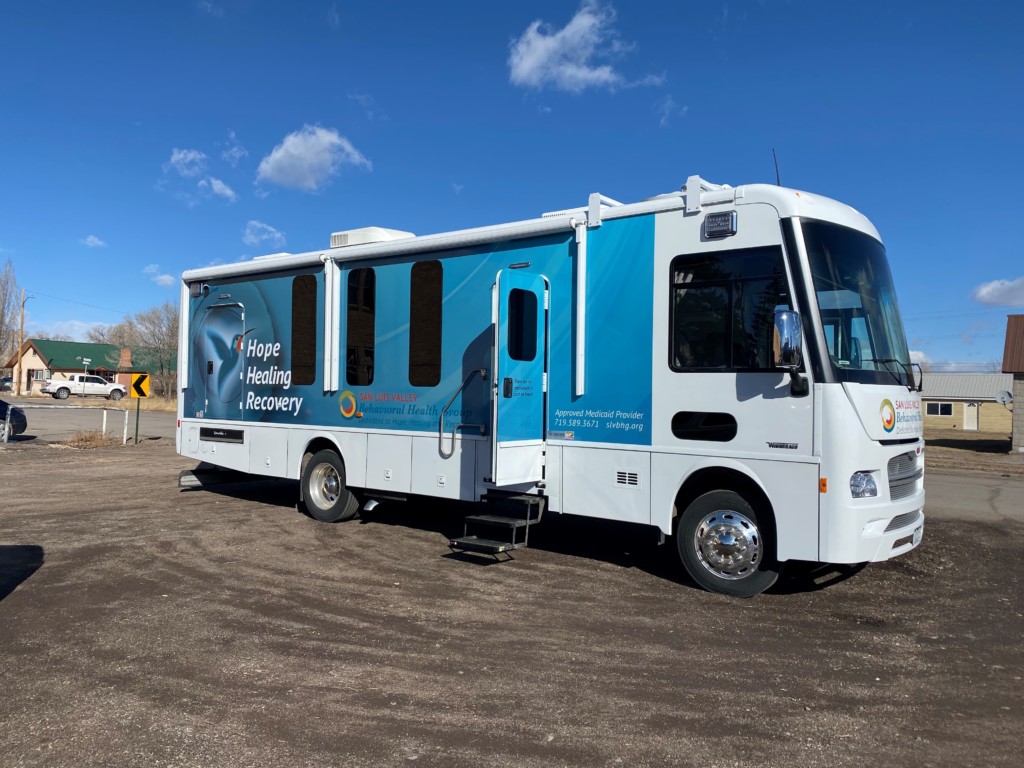
Inside one of the San Luis Valley (SLV) Mobile Health Units, you’ll find a team of women who are deeply committed to caring for moms dealing with substance use disorder and are also passionate about the unique role these mobile units play in a successful recovery. We talked with Jennifer Brooks, the peer specialist on the unit who helps clients set up therapy appointments, connects them to different programs inside and outside the agency and offers guidance for clients with different needs. We also spoke with Valerie, the counselor on board who helps clients when they have a bad day or need immediate assistance in any area of life. And we talked with Robyn Hindes – the nurse on board the mobile unit – and Lindsey Renner, a Nurse Practitioner connected remotely to the team from Denver. This is a compilation of their thoughts, offering an inside look at what it means to provide mobile connections to moms when and where they need it.
“Just being mobile in a rural area is a huge benefit. A lot of our mothers don’t have transportation, and they have to walk to get treatment. We want to be in towns where they need us the most and help to take away transportation barriers. In addition, these moms are facing more than just transportation barriers. They also often are seeking food security, need a place to live, etc. We triage those things through other supports and work to help them with all that is going on in their lives.
The mobile units work especially well because, for a lot of moms, going into a larger scale clinical setting is not comfortable. In the mobile unit, there aren’t a lot of people around, and there isn’t a chance that their friends and neighbors will see them go to a clinic and wonder about what they are doing. Since we don’t have any signage that talks about substance use, there is much more privacy here. It’s a place for one-stop care. Plus, here they feel like they really matter: there are four people who are just focused on them. We don’t just give them meds and send them on their way. We help them with counseling about how to be a parent, a wife, how to interact with their families and more. We meet with recurring clients 30 minutes a week and we help them navigate living independently.
We know what these moms are going through, and we connect to our inner compassion and empathy to keep them engaged with our services. If they don’t show up for a meeting, we don’t just discharge them - doing that could mean that it might take too long to get them back to treatment. Instead, we tell them that we understand that they may not be ready, and that we will be here for them when they are. We welcome them back, and we help them to see how they can succeedl.
Reaching moms in rural areas like the San Luis Valley is really daunting. It is incredibly easy for people to get drugs here. Often, everybody knows a mom is using, and because it is often her friends and family who know, she can’t get away from it. It feels like there is no escape even when treatment is available. If these moms get turned away the one time they ask for help, they feel defeated and may give up. We never turn a mom away – even if we can’t get them an appointment right that minute. We bring them in, get their paperwork going, and tell them we are there for them. Our experience is that they almost always come back.
We have a patient now who has been coming to us for two years. She is over a year clean and now pregnant – she is absolutely glowing, and we are so excited for her. She is successful, her husband is successful and it is so amazing to see her and her cute baby bump! We know we can’t save everybody, but her success shows us that they are making it, and it makes our jobs so rewarding. Even when a mom comes back and tells us they used again, we’re just encouraged that they came back. And that’s what is important. We are here to assure them that they can make it. They can be successful. We’re here for them!”
Share this article:



